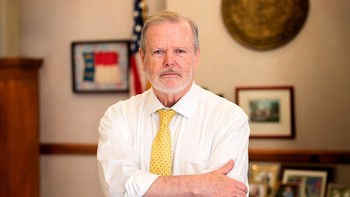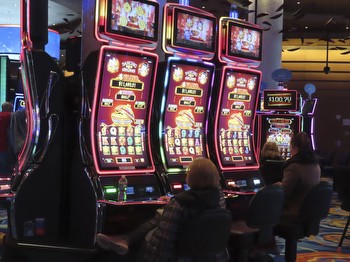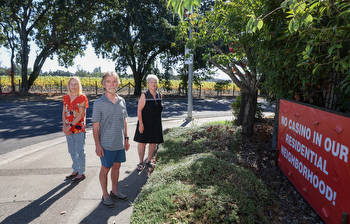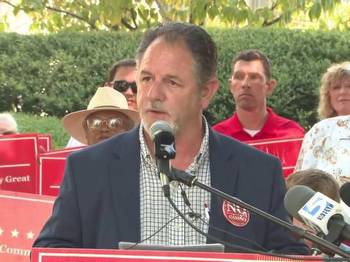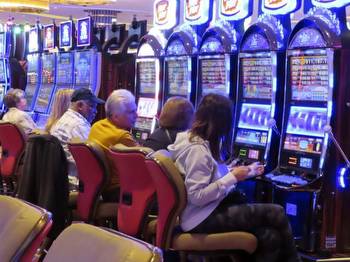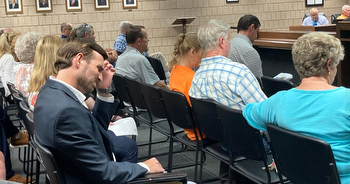Trees and casinos: imaginary solutions to real and serious problems

Plant a trillion trees. U.S. House Republicans offered that idea last week as their plan for addressing the global climate emergency.
And it’s hard to know whether to laugh or cry in response.
Yes, planting more trees is always a fine idea, as deforestation is a big and deeply worrisome contributing factor to the world’s environmental woes.
And it’s heartening to hear people who’ve so long denied the reality of climate change finally acknowledge the seriousness of the problem.
But the hard truth is that there’s no simple fix for the climate crisis. Just managing the devastation and keeping the situation from spiraling completely out of control will take herculean efforts in dozens of fields.
And given that the political right still adamantly rejects one of the most important imperatives – dramatically reducing fossil fuel use – the tree scheme smacks more of a cynical P.R. move than a genuine commitment to action.
Sadly, North Carolinians have born witness to a similarly superficial, inadequate and distracting initiative of late in a very different part of the public policy landscape.
As numerous news outlets have reported, state legislative leaders are advancing a new scheme for addressing the economic struggles of some rural communities – most of which, of course, lean right and Republican: casino gambling.
House Speaker Tim Moore told WRAL that three economically disadvantaged counties — Rockingham (home of Senate President Pro Tem Phil Berger), Anson and Nash – are the ones targeted in the scheme, through a fourth casino could also be authorized for the southeastern section of the state under the auspices of the Lumbee Tribe. An undisclosed corporation – presumably one of the nation’s giant gambling conglomerates – would supposedly invest as much as $1.5 billion.
Moore, who of course has already succeeded in helping the South Carolina-based Catawba Tribe in opening a casino in his hometown of Kings Mountain, claimed that rural lawmakers – a group that one might ordinarily assume would be inclined to listen to conservative religious leaders opposed to gambling – are enthusiastic.
“They see it as a way to really spur the economy of the region,” Moore said.
The GOP gambling plan could also reportedly include legislation to open general legalization of slot-machine-style video lottery terminals in bars, restaurants and convenience stores.
It’s hard to overstate what a terrible idea all of this is.
The people of North Carolina need a lot right now from their elected leaders: an adequately funded public education system, access to affordable healthcare, funding to fill thousands of vacancies in state jobs, and strong action to protect them from the spread of toxic chemicals, just to name a few.
One thing, however, that’s most assuredly not on the list is this: more corporate-controlled gambling.
Indeed, it’s remarkable how directly the dishonest playbook the gambling industry and its lobbyists follow with politicians mirrors its business model with its customers.
You know how this goes: “Get rich!” “Create jobs!” “Fund your schools!” For decades now, giant predatory gambling corporations have promised U.S. states that their “product” would provide a magical lift to their economies and tax bases.
And repeatedly, like the “get rich” come-ons to individual gamblers, the promises have turned out to be illusory. What’s more, unlike with individuals, there’s no “entertainment” factor for states to enjoy when it comes to casinos.
Yes, Nevada has built an economy around gambling tourism – though many would question the nature of the community to which that economy has given rise – but elsewhere, the story is one of almost unbroken failure.
Remarkably, advocates at the nonprofit Stop Predatory Gambling report that according to a study by the Illinois Gambling Board, “the total enrollment of citizens in the state’s voluntary Self-Exclusion Program was 11,119 and the total number of full and part-time casino jobs was 7,137 – almost 35% higher.”
In other words, thousands more people battling gambling addiction have banned themselves from the state’s casinos than there are people who work inside them. And the number of self-identified addicts is much lower than the actual number. One can only imagine how such numbers would soar in North Carolina if lawmakers were to go so far as to unleash the state’s bars, restaurants and convenience stores to start hosting video gambling terminals.
The bottom line: As this summer’s frightful weather makes clear, now is the time for urgent, all-hands-on-deck action to combat the global climate emergency.
And so it is as well when it comes to the struggles – economic, environmental, public health – that confront so much of rural North Carolina.
While it’s easy to understand the allure of seemingly quick and easy fixes – be it a trillion trees or a crop of casinos — the best hope for lasting and meaningful solutions in both areas lies in a renewed commitment to unglamorous public solutions that take time, public investments, hard work, and shared sacrifice.
Would that all our political leaders had the courage and honesty to tell this important truth.








